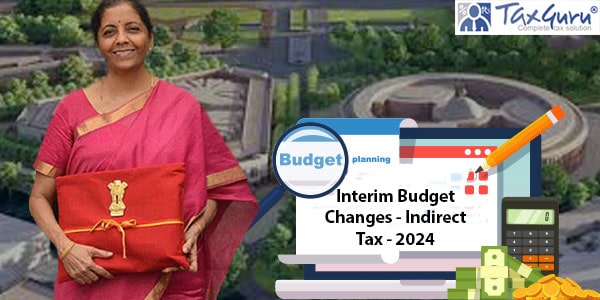Introduction: Dive into the intricacies of the 52nd GST Council Meeting, unraveling key amendments in the GST provisions. Understand the mandatory distribution of Input Tax Credit (ITC) by Input Service Distributors (ISD) and the special compliance procedures for manufacturers of Pan-masala, tobacco, and related products. Explore the implications of these changes on businesses and compliance.
1. GST Council in its 50th and 52nd meeting has recommended certain changes with respect to the provisions relating to input service distributors (ISD) so as to mandate compulsory distribution of Input Tax Credit (ITC) in respect of input service procured by Head Office (H.O) procured from third parties which is attributed to both H.O and Branch Office (B.O). Accordingly, the said recommendations have been considered in the interim Finance Budget Bill 2024 and relevant provisions are amended which are explained as under:
a. It has been proposed to amend the term ISD[1] so as to include not only tax invoices towards the receipt of input services but also invoices in respect of services which liable to tax under section 9(3) or 9(4) of the CGST Act, 2017.
b. Any office of the supplier of goods or services or both which receives:
-
- Tax invoices towards receipt of input services;
- Invoices in respect of services liable to tax under the Reverse Charge mechanism for or on behalf of a distinct person u/s 25 of CGST Act,2017;
shall have to compulsorily[2] obtain GST registration as ISD under the relevant provisions of the CGST Act, 2017.
c. The manner of distribution of input tax credit among recipients by issue of document containing the amount of input tax credit by ISD for invoices mentioned supra are yet to be notified.

2. Special compliance procedures[3] have been implemented for registered persons engaged in manufacturing of Pan-masala, Tobacco, and other related products to register and update details of packing machines being used for filling and packing of pouches or containers. Relevant provisions[4] have been inserted to levy a penalty of rupees one lakh per machine for not getting it registered under special provisions implemented for it. If the penalty is not paid and registration is not obtained within 3 days of receipt of the communication of the order of penalty, the machines not so registered will be liable for seizure and confiscation.
Conclusion: As the GST landscape undergoes reforms, businesses need to adapt to the updated regulations arising from the 52nd GST Council Meeting. The amendments in ISD provisions and special compliance procedures bring forth new challenges and considerations. This comprehensive summary, while providing insights, emphasizes the need for businesses to seek formal legal advice for precise implementation. Stay informed and navigate the evolving GST landscape effectively.
[1] Section 2(61) of the CGST Act, 2017 substituted vide clause 11 of Finance Bill, 2024
[2] Section 20 of the CGST Act, 2017 substituted vide clause 12 of Finance Bill, 2024
[3] Notification No.30/2023-CT dated 31.07.2023 & Notification No.04/2024-CT dated 05.01.2024
[4] Section 122A inserted vide clause 13 of Finance Bill,2024
*****
Disclaimer: This document summarizes the changes in indirect tax – GST as per 52nd GST Council Meeting. The information provided in this document is intended for informational purposes only and does not constitute legal opinion or advice. Readers are requested to seek formal legal advice prior to acting upon any of the information provided herein.




